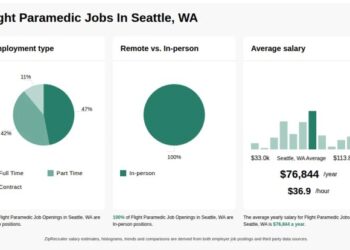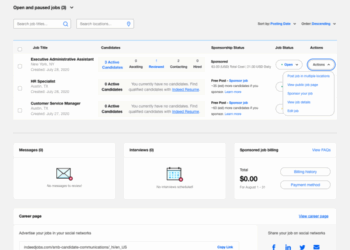Embarking on a journey into the realm of data science careers without a technical background can seem daunting, but fear not. This guide will navigate you through the essential steps to pave your way into this exciting field, offering insights and strategies to help you succeed.
Exploring the intricacies of data science roles and the necessary fundamentals, this introduction sets the stage for a transformative learning experience in a field that thrives on innovation and problem-solving.
Researching Data Science Jobs
Researching data science jobs is crucial for anyone looking to break into the field without a tech background. By understanding the different roles, required skills, and industries that offer these positions, you can better tailor your job search and prepare for success.
Understanding Different Data Science Job Roles
- Begin by exploring the various job titles within data science, such as data analyst, data engineer, machine learning engineer, and data scientist.
- Research the responsibilities and daily tasks associated with each role to determine which aligns best with your interests and strengths.
- Look at job descriptions on platforms like LinkedIn, Glassdoor, and Indeed to gain insights into the specific requirements for each position.
Identifying Required Skills for Data Science Jobs
- Make a list of the technical skills commonly requested in data science job postings, such as programming languages (Python, R), statistical analysis, machine learning, and data visualization.
- Consider acquiring these skills through online courses, bootcamps, or self-study to enhance your qualifications for data science roles.
- Look for transferable skills from your current experience that could be valuable in a data science career, such as problem-solving, critical thinking, and attention to detail.
Exploring Industries Offering Data Science Positions
- Research industries that heavily rely on data analysis and predictive modeling, such as technology, finance, healthcare, e-commerce, and marketing.
- Consider the growth potential and job opportunities in each industry to determine where your skills and interests align best.
- Network with professionals in these industries to gain insights into the demand for data scientists and the specific challenges they face.
Learning Data Science Fundamentals
To excel in data science jobs without a tech background, it is crucial to understand the fundamental concepts of data science, focus on learning programming languages commonly used in the field, and grasp the significance of statistics and mathematics in data science roles.
Essential Concepts in Data Science
- Understand Data Types: Familiarize yourself with different types of data such as structured, unstructured, and semi-structured data.
- Data Manipulation: Learn how to clean, preprocess, and manipulate data using tools like Pandas in Python.
- Data Visualization: Master the art of visualizing data through graphs, charts, and plots to derive insights effectively.
- Machine Learning Basics: Gain a basic understanding of machine learning algorithms and techniques for predictive analysis.
Programming Languages for Data Science
- Python: Python is the most popular programming language in data science due to its simplicity and versatility. Resources like Codecademy and DataCamp offer interactive Python courses tailored for beginners.
- R: R is another widely used language in data science for statistical computing and graphics. Websites like Coursera and edX provide R programming courses for beginners.
- SQL: Understanding SQL is essential for querying databases and extracting valuable information. Platforms like Khan Academy and W3Schools offer SQL tutorials for beginners.
Importance of Statistics and Mathematics
Statistics and mathematics form the backbone of data science, enabling professionals to analyze data accurately and derive meaningful insights. A solid foundation in these areas is crucial for success in data science roles.
“Statistics is the grammar of data science, and mathematics is its language.”
- Probability Theory: Understanding probability concepts is essential for making informed decisions based on data uncertainty.
- Linear Algebra: Knowledge of linear algebra helps in working with matrices and solving complex mathematical equations in data science algorithms.
- Statistical Analysis: Proficiency in statistical techniques such as hypothesis testing, regression analysis, and ANOVA is vital for data interpretation and model building
.
Building a Strong Foundation
Building a strong foundation in data science is crucial for starting a successful career in this field. This involves acquiring relevant certifications or completing online courses, participating in data science projects or competitions, and creating a portfolio to showcase your skills to potential employers.
Acquiring Relevant Certifications or Online Courses
One way to build a strong foundation in data science is by obtaining relevant certifications or completing online courses. These credentials not only enhance your knowledge and skills but also demonstrate your commitment to the field. Some popular online platforms offering data science courses include Coursera, Udemy, and edX.
Look for courses that cover topics like machine learning, data analysis, and programming languages such as Python and R.
Participating in Data Science Projects or Competitions
Another effective way to strengthen your foundation in data science is by getting hands-on experience through projects or competitions. Joining data science projects allows you to apply your knowledge to real-world scenarios and collaborate with other professionals in the field.
Competing in data science competitions, such as Kaggle, can also help you sharpen your skills and gain recognition within the data science community.
Creating a Portfolio
Building a portfolio is essential for showcasing your data science skills to potential employers. Include projects you have worked on, any certifications or courses you have completed, and any relevant experience you have in the field. Make sure your portfolio is well-organized, visually appealing, and highlights your accomplishments effectively.
This will not only demonstrate your capabilities but also set you apart from other candidates in the job market.
Networking in the Data Science Community
Networking plays a crucial role in landing data science jobs as it helps you connect with professionals in the field, gain valuable insights, and discover new opportunities. Building a strong network can significantly enhance your career prospects in data science.
Strategies for Connecting with Professionals
- Join online data science forums and communities to engage with like-minded individuals.
- Attend data science meetups, conferences, and workshops to meet professionals face-to-face.
- Utilize professional networking platforms like LinkedIn to connect with data science experts.
- Reach out to alumni or professionals in your network for informational interviews or mentorship.
Benefits of Attending Data Science Events or Webinars
Attending data science events or webinars can offer numerous benefits such as:
- Opportunities to learn about the latest trends and technologies in data science.
- Networking with industry professionals and potential employers.
- Access to valuable resources, tools, and tips for advancing your data science career.
- Potential to showcase your skills and knowledge through presentations or discussions.
Conclusion
As we conclude our exploration of starting a data science career without a tech background, remember that the path may be challenging, but with dedication and perseverance, you can carve a niche for yourself in this rapidly evolving industry. Let your passion for data and analytics drive you towards a successful and fulfilling career in data science.
Helpful Answers
What are some key skills needed for data science jobs without a tech background?
While technical skills are important, soft skills like critical thinking, problem-solving, and communication are equally crucial in data science roles. Employers also value adaptability and a willingness to learn new technologies.
Is it necessary to have a degree in a tech-related field to pursue a career in data science?
While a degree in a tech-related field can be beneficial, many successful data scientists come from diverse educational backgrounds. What matters most is your ability to demonstrate relevant skills and experience through projects, certifications, and practical knowledge.
How can networking help in securing a data science job without a tech background?
Networking allows you to connect with professionals in the field, gain insights into industry trends, and access job opportunities that may not be publicly advertised. Building relationships with data science professionals can open doors to mentorship, collaborations, and career growth.










